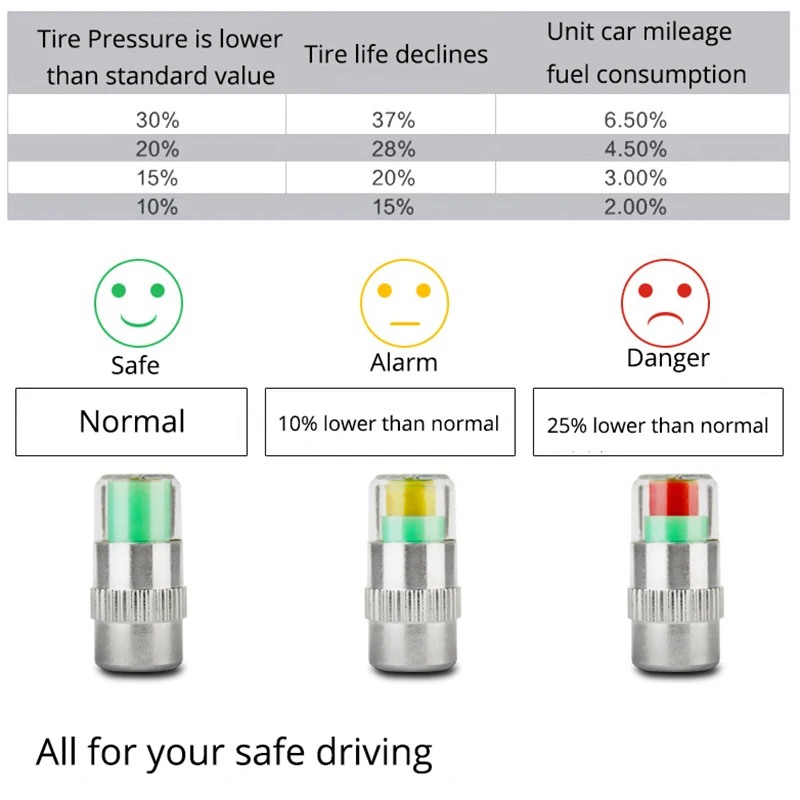The purpose of the tire pressure monitoring system (TPMS) in your vehicle is to warn you that at least one or more tires are significantly under-inflated, possibly creating unsafe driving conditions. The TPMS low tire pressure indicator is a yellow symbol that illuminates on the dashboard instrument panel in the shape of a tire cross-section (that resembles a horseshoe) with an exclamation point.
That indicator light in your vehicle has a history. It’s a history rooted in years of uncertainty about proper tire pressure and many serious car accidents that might have been avoided had drivers known their air pressure was low. Even now, it’s estimated that a substantial number of vehicles hit the road each day with underinflated tires. However, proper tire maintenance with the aid of a TPMS can and does help prevent many serious accidents.
Before this indicator light became commonplace, knowing whether your air pressure had reached unsafe levels meant getting out, crouching down, and using a tire gauge. With few exceptions, this was the only pressure-checking tool ordinary consumers had at their disposal.
Then, in response to a surge in accidents due to underinflated tires, the US government passed the Transportation Recall Enhancement, Accountability, and Documentation (TREAD) Act. One of the outcomes of this legislation is that most vehicles sold in the United States since 2007 include a tire pressure monitoring system of some kind.
Not every TPMS works the same way. The illumination of the low tire pressure indicator represents the final step in the process of either an indirect TPMS or a direct TPMS.
An indirect TPMS typically relies on wheel speed sensors that the anti-lock brake system uses. These sensors measure the rate of revolution each wheel is making and can be used by on-board computer systems to compare with each other and to other vehicle operation data such as speed.
Based on the rate of revolution of each wheel, the computer can interpret the relative size of the tires on your vehicle.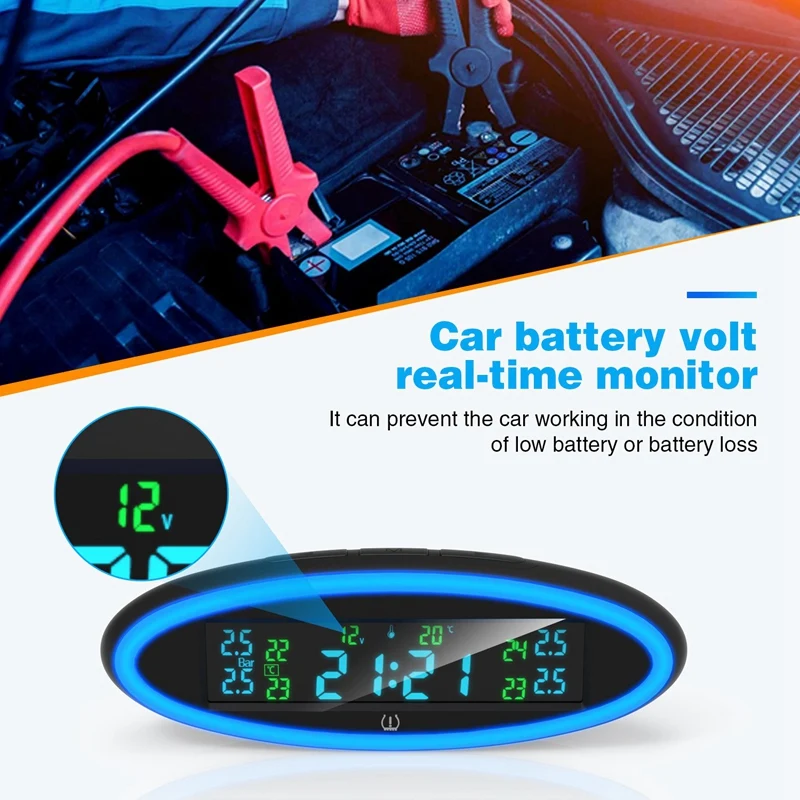 When a wheel starts spinning faster than expected, the computer calculates that the tire is underinflated and alert the driver accordingly.
When a wheel starts spinning faster than expected, the computer calculates that the tire is underinflated and alert the driver accordingly.
So, an indirect tire pressure monitoring system doesn’t actually measure tire pressure. It’s not electronically processing the same kind of measurement you might see with a tire gauge. Instead, an indirect tire pressure monitor simply measures how fast your tires are rotating and sends signals to the computer that will actuate the indicator light when something in the rotation seems amiss.
-- Relatively inexpensive compared to a direct TPMS
-- Requires less programming/maintenance over the years than a direct TPMS
-- Less overall installation maintenance than its direct counterpart
-- May become inaccurate if you purchase a bigger or smaller tire
-- May be unreliable when tires are unevenly worn
-- Must be reset after properly inflating every tire
-- Must be reset after routine tire rotation
Direct TPMS uses pressure monitoring sensors within each tire that monitor specific pressure levels – not just wheel revolution data from the anti-lock brake system.
Sensors in a direct TPMS may even provide tire temperature readings. The direct tire pressure monitoring system sends all of this data to a centralized control module where it’s analyzed, interpreted, and, if tire pressure is lower than it should be, transmitted directly to your dashboard where the indicator light illuminates. A direct tire pressure monitor usually sends all of this data wirelessly. Each sensor has a unique serial number. This is how the system not only distinguishes between itself and systems on other vehicles, but also among pressure readings for each individual tire.
Many manufacturers use proprietary technology for these highly specialized systems, so replacing a TPMS in a way that’s consistent and compatible with your vehicle will require an experienced, knowledgeable technician.
-- Deliver actual tire pressure readings from inside the tire
-- Not prone to inaccuracies because of tire rotations or tire replacements
-- Simple resynchronization after tire rotation or tire replacements
-- Batteries inside the sensors usually last for about a decade.
-- May be included in a vehicle’s spare tire
-- More expensive overall than an indirect TPMS
-- Though simple, resynchronization may require costly tools.
-- Battery rarely serviceable; if the battery is drained, the whole sensor must be changed.
-- Proprietary systems make installation, service, and replacement confusing for consumers and auto shops.
-- Sensors are susceptible to damage during mounting/demounting
Although the methods may be different, both systems serve the same purpose and activate the same indicator light. Even though a TPMS can deliver accurate alerts when properly maintained, it’s not a replacement for manual air pressure checks, consider it just another item in your car maintenance toolbox.
There’s never a good time for a flat. That’s why Bridgestone DriveGuard tires are masterfully engineered to keep you moving for up to 50 miles at speeds up to 50 MPH without disruption.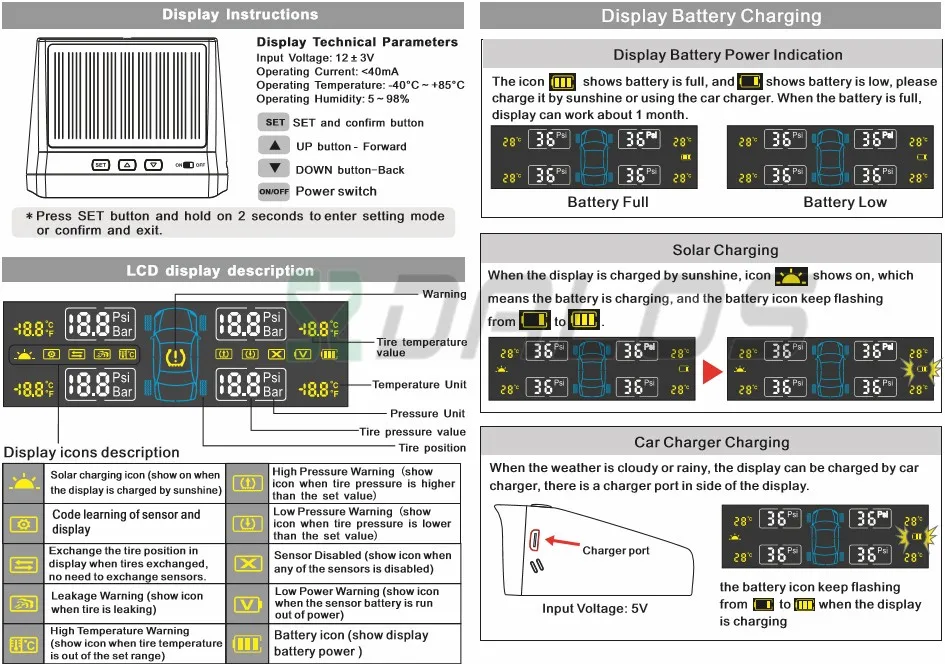
There’s never a good time for a flat. That’s why Bridgestone DriveGuard tires are masterfully engineered to keep you moving for up to 50 miles at speeds up to 50 MPH without disruption.
See Details Find Your Fit
The purpose of the TPMS (Tire Pressure Monitoring System) is to alert you when tire pressure is too low and could create unsafe driving conditions. If the light is illuminated, it means your tires could be underinflated, which can lead to undue tire wear and possible tire failure. It's important to understand the importance of proper tire inflation, and how TPMS can help you avoid a dangerous situation.
Both overinflation and underinflation can cause premature treadwear and possible tire failure.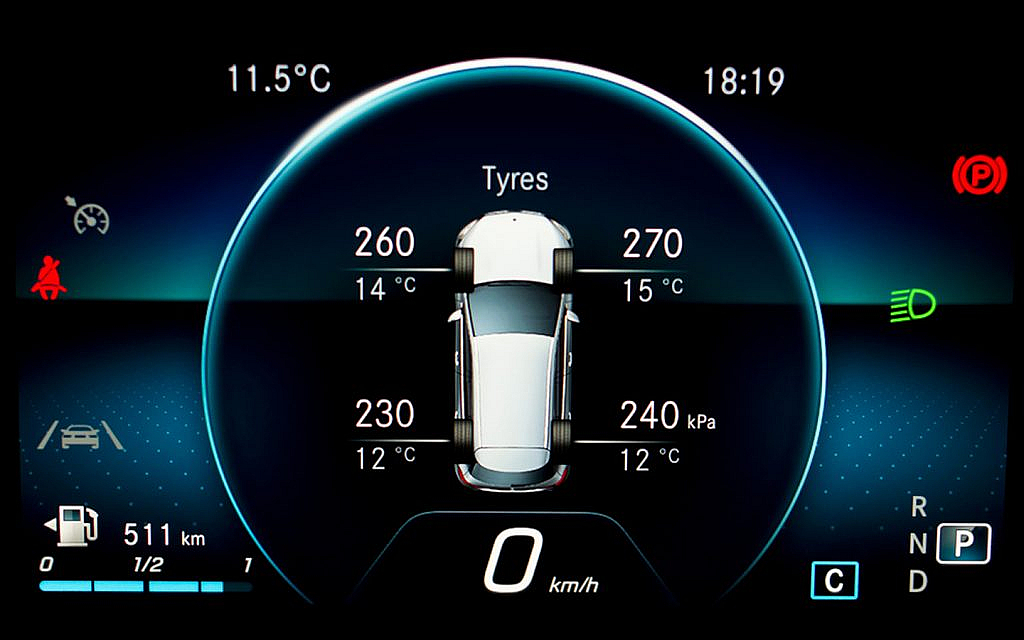 Overinflation can result in decreased traction, premature wear, and the inability to absorb road impact. Overinflated tires will show premature wear in the center of the tread. On the other hand, underinflation will cause sluggish tire response, decreased fuel economy, excessive heat buildup, and tire overload. An underinflated tire will show premature wear on both sides of the tread edges or “shoulders”.
Overinflation can result in decreased traction, premature wear, and the inability to absorb road impact. Overinflated tires will show premature wear in the center of the tread. On the other hand, underinflation will cause sluggish tire response, decreased fuel economy, excessive heat buildup, and tire overload. An underinflated tire will show premature wear on both sides of the tread edges or “shoulders”.
If you’re learning about tire pressure sensors for the first time, finding the TPMS indicator on your dashboard is simple. It’s a horseshoe-shaped light with an exclamation point in the center.
For those looking for a luxury tire experience
See Tire Details This Tire Fits Your Vehicle See a map of stores near you where you can buy this tire
See Tires That Fit Does Not Fit Your Vehicle
See if it Fits Not Sure If This Tire Fits
80,000 miles of quiet, comfort and control*
See Tire Details This Tire Fits Your Vehicle See a map of stores near you where you can buy this tire
See Tires That Fit Does Not Fit Your Vehicle
See if it Fits Not Sure If This Tire Fits
Keep your life on a roll
See Tire Details This Tire Fits Your Vehicle See a map of stores near you where you can buy this tire
See Tires That Fit Does Not Fit Your Vehicle
See if it Fits Not Sure If This Tire Fits
All-season tires that won't stop until they get you there
See Tire Details This Tire Fits Your Vehicle See a map of stores near you where you can buy this tire
See Tires That Fit Does Not Fit Your Vehicle
See if it Fits Not Sure If This Tire Fits
Confident all-weather protection
See Tire Details This Tire Fits Your Vehicle See a map of stores near you where you can buy this tire
See Tires That Fit Does Not Fit Your Vehicle
See if it Fits Not Sure If This Tire Fits
Drive more and fill up your tank less*
See Tire Details This Tire Fits Your Vehicle See a map of stores near you where you can buy this tire
See Tires That Fit Does Not Fit Your Vehicle
See if it Fits Not Sure If This Tire Fits
Extended mobility PLUS improved performance through the elements
See Tire Details This Tire Fits Your Vehicle See a map of stores near you where you can buy this tire
See Tires That Fit Does Not Fit Your Vehicle
See if it Fits Not Sure If This Tire Fits
Built for your truck, SUV, or CUV
See Tire Details This Tire Fits Your Vehicle See a map of stores near you where you can buy this tire
See Tires That Fit Does Not Fit Your Vehicle
See if it Fits Not Sure If This Tire Fits
Tough enough to take a puncture*
See Tire Details This Tire Fits Your Vehicle See a map of stores near you where you can buy this tire
See Tires That Fit Does Not Fit Your Vehicle
See if it Fits Not Sure If This Tire Fits
Tires that take you on a thrill ride
See Tire Details This Tire Fits Your Vehicle See a map of stores near you where you can buy this tire
See Tires That Fit Does Not Fit Your Vehicle
See if it Fits Not Sure If This Tire Fits
Ready for heavy-duty hauls
See Tire Details This Tire Fits Your Vehicle See a map of stores near you where you can buy this tire
See Tires That Fit Does Not Fit Your Vehicle
See if it Fits Not Sure If This Tire Fits
High performance driving all year long
See Tire Details This Tire Fits Your Vehicle See a map of stores near you where you can buy this tire
See Tires That Fit Does Not Fit Your Vehicle
See if it Fits Not Sure If This Tire Fits
Handle it all in your high performance CUV or SUV
See Tire Details This Tire Fits Your Vehicle See a map of stores near you where you can buy this tire
See Tires That Fit Does Not Fit Your Vehicle
See if it Fits Not Sure If This Tire Fits
Ready for the long haul
See Tire Details This Tire Fits Your Vehicle See a map of stores near you where you can buy this tire
See Tires That Fit Does Not Fit Your Vehicle
See if it Fits Not Sure If This Tire Fits
Built to keep you and your workload going
See Tire Details This Tire Fits Your Vehicle See a map of stores near you where you can buy this tire
See Tires That Fit Does Not Fit Your Vehicle
See if it Fits Not Sure If This Tire Fits
Built for the demands of commercial highway driving
See Tire Details This Tire Fits Your Vehicle See a map of stores near you where you can buy this tire
See Tires That Fit Does Not Fit Your Vehicle
See if it Fits Not Sure If This Tire Fits
View All Season Tires
For those looking for a luxury tire experience
See Tire Details This Tire Fits Your Vehicle See a map of stores near you where you can buy this tire
See Tires That Fit Does Not Fit Your Vehicle
See if it Fits Not Sure If This Tire Fits
Keep your life on a roll
See Tire Details This Tire Fits Your Vehicle See a map of stores near you where you can buy this tire
See Tires That Fit Does Not Fit Your Vehicle
See if it Fits Not Sure If This Tire Fits
Built for your truck, SUV, or CUV
See Tire Details This Tire Fits Your Vehicle See a map of stores near you where you can buy this tire
See Tires That Fit Does Not Fit Your Vehicle
See if it Fits Not Sure If This Tire Fits
Take on the intensity of on and off road driving
See Tire Details This Tire Fits Your Vehicle See a map of stores near you where you can buy this tire
See Tires That Fit Does Not Fit Your Vehicle
See if it Fits Not Sure If This Tire Fits
Tires that take you on a thrill ride
See Tire Details This Tire Fits Your Vehicle See a map of stores near you where you can buy this tire
See Tires That Fit Does Not Fit Your Vehicle
See if it Fits Not Sure If This Tire Fits
Ready for heavy-duty hauls
See Tire Details This Tire Fits Your Vehicle See a map of stores near you where you can buy this tire
See Tires That Fit Does Not Fit Your Vehicle
See if it Fits Not Sure If This Tire Fits
Handle it all in your high performance CUV or SUV
See Tire Details This Tire Fits Your Vehicle See a map of stores near you where you can buy this tire
See Tires That Fit Does Not Fit Your Vehicle
See if it Fits Not Sure If This Tire Fits
Next level summer performance for your Sport Truck or SUV
See Tire Details This Tire Fits Your Vehicle See a map of stores near you where you can buy this tire
See Tires That Fit Does Not Fit Your Vehicle
See if it Fits Not Sure If This Tire Fits
Ready for the long haul
See Tire Details This Tire Fits Your Vehicle See a map of stores near you where you can buy this tire
See Tires That Fit Does Not Fit Your Vehicle
See if it Fits Not Sure If This Tire Fits
Built to keep you and your workload going
See Tire Details This Tire Fits Your Vehicle See a map of stores near you where you can buy this tire
See Tires That Fit Does Not Fit Your Vehicle
See if it Fits Not Sure If This Tire Fits
Built for the demands of commercial highway driving
See Tire Details This Tire Fits Your Vehicle See a map of stores near you where you can buy this tire
See Tires That Fit Does Not Fit Your Vehicle
See if it Fits Not Sure If This Tire Fits
View All Light/Medium Truck Tires
For winters worst
See Tire Details This Tire Fits Your Vehicle See a map of stores near you where you can buy this tire
See Tires That Fit Does Not Fit Your Vehicle
See if it Fits Not Sure If This Tire Fits
Luxury takes on winter
See Tire Details This Tire Fits Your Vehicle See a map of stores near you where you can buy this tire
See Tires That Fit Does Not Fit Your Vehicle
See if it Fits Not Sure If This Tire Fits
Impressive grip and control
See Tire Details This Tire Fits Your Vehicle See a map of stores near you where you can buy this tire
See Tires That Fit Does Not Fit Your Vehicle
See if it Fits Not Sure If This Tire Fits
Navigate through snow and ice in your SUV, CUV, or truck
See Tire Details This Tire Fits Your Vehicle See a map of stores near you where you can buy this tire
See Tires That Fit Does Not Fit Your Vehicle
See if it Fits Not Sure If This Tire Fits
Built for blizzards and winters worst in a commerical light truck or van
See Tire Details This Tire Fits Your Vehicle See a map of stores near you where you can buy this tire
See Tires That Fit Does Not Fit Your Vehicle
See if it Fits Not Sure If This Tire Fits
Built to get you through this winter
See Tire Details This Tire Fits Your Vehicle See a map of stores near you where you can buy this tire
See Tires That Fit Does Not Fit Your Vehicle
See if it Fits Not Sure If This Tire Fits
Keep your commercial truck or van in commission all winter
See Tire Details This Tire Fits Your Vehicle See a map of stores near you where you can buy this tire
See Tires That Fit Does Not Fit Your Vehicle
See if it Fits Not Sure If This Tire Fits
View All Winter Tires
Take control of the track
See Tire Details This Tire Fits Your Vehicle See a map of stores near you where you can buy this tire
See Tires That Fit Does Not Fit Your Vehicle
See if it Fits Not Sure If This Tire Fits
Sleek, sporty, and cornering performance
See Tire Details This Tire Fits Your Vehicle See a map of stores near you where you can buy this tire
See Tires That Fit Does Not Fit Your Vehicle
See if it Fits Not Sure If This Tire Fits
Take your sports car for a spin
See Tire Details This Tire Fits Your Vehicle See a map of stores near you where you can buy this tire
See Tires That Fit Does Not Fit Your Vehicle
See if it Fits Not Sure If This Tire Fits
Next level summer performance for your Sport Truck or SUV
See Tire Details This Tire Fits Your Vehicle See a map of stores near you where you can buy this tire
See Tires That Fit Does Not Fit Your Vehicle
See if it Fits Not Sure If This Tire Fits
Feel the rush with tires inspired by racing
See Tire Details This Tire Fits Your Vehicle See a map of stores near you where you can buy this tire
See Tires That Fit Does Not Fit Your Vehicle
See if it Fits Not Sure If This Tire Fits
Chase your competitive spirit
See Tire Details This Tire Fits Your Vehicle See a map of stores near you where you can buy this tire
See Tires That Fit Does Not Fit Your Vehicle
See if it Fits Not Sure If This Tire Fits
View All Summer Tires
For those looking for a luxury tire experience
See Tire Details This Tire Fits Your Vehicle See a map of stores near you where you can buy this tire
See Tires That Fit Does Not Fit Your Vehicle
See if it Fits Not Sure If This Tire Fits
80,000 miles of quiet, comfort and control*
See Tire Details This Tire Fits Your Vehicle See a map of stores near you where you can buy this tire
See Tires That Fit Does Not Fit Your Vehicle
See if it Fits Not Sure If This Tire Fits
Keep your life on a roll
See Tire Details This Tire Fits Your Vehicle See a map of stores near you where you can buy this tire
See Tires That Fit Does Not Fit Your Vehicle
See if it Fits Not Sure If This Tire Fits
All-season tires that won't stop until they get you there
See Tire Details This Tire Fits Your Vehicle See a map of stores near you where you can buy this tire
See Tires That Fit Does Not Fit Your Vehicle
See if it Fits Not Sure If This Tire Fits
Confident all-weather protection
See Tire Details This Tire Fits Your Vehicle See a map of stores near you where you can buy this tire
See Tires That Fit Does Not Fit Your Vehicle
See if it Fits Not Sure If This Tire Fits
Drive more and fill up your tank less*
See Tire Details This Tire Fits Your Vehicle See a map of stores near you where you can buy this tire
See Tires That Fit Does Not Fit Your Vehicle
See if it Fits Not Sure If This Tire Fits
Extended mobility PLUS improved performance through the elements
See Tire Details This Tire Fits Your Vehicle See a map of stores near you where you can buy this tire
See Tires That Fit Does Not Fit Your Vehicle
See if it Fits Not Sure If This Tire Fits
Built for your truck, SUV, or CUV
See Tire Details This Tire Fits Your Vehicle See a map of stores near you where you can buy this tire
See Tires That Fit Does Not Fit Your Vehicle
See if it Fits Not Sure If This Tire Fits
Take on the intensity of on and off road driving
See Tire Details This Tire Fits Your Vehicle See a map of stores near you where you can buy this tire
See Tires That Fit Does Not Fit Your Vehicle
See if it Fits Not Sure If This Tire Fits
Tough enough to take a puncture*
See Tire Details This Tire Fits Your Vehicle See a map of stores near you where you can buy this tire
See Tires That Fit Does Not Fit Your Vehicle
See if it Fits Not Sure If This Tire Fits
Tires that take you on a thrill ride
See Tire Details This Tire Fits Your Vehicle See a map of stores near you where you can buy this tire
See Tires That Fit Does Not Fit Your Vehicle
See if it Fits Not Sure If This Tire Fits
Ready for heavy-duty hauls
See Tire Details This Tire Fits Your Vehicle See a map of stores near you where you can buy this tire
See Tires That Fit Does Not Fit Your Vehicle
See if it Fits Not Sure If This Tire Fits
High performance driving all year long
See Tire Details This Tire Fits Your Vehicle See a map of stores near you where you can buy this tire
See Tires That Fit Does Not Fit Your Vehicle
See if it Fits Not Sure If This Tire Fits
Handle it all in your high performance CUV or SUV
See Tire Details This Tire Fits Your Vehicle See a map of stores near you where you can buy this tire
See Tires That Fit Does Not Fit Your Vehicle
See if it Fits Not Sure If This Tire Fits
Take control of the track
See Tire Details This Tire Fits Your Vehicle See a map of stores near you where you can buy this tire
See Tires That Fit Does Not Fit Your Vehicle
See if it Fits Not Sure If This Tire Fits
Sleek, sporty, and cornering performance
See Tire Details This Tire Fits Your Vehicle See a map of stores near you where you can buy this tire
See Tires That Fit Does Not Fit Your Vehicle
See if it Fits Not Sure If This Tire Fits
Take your sports car for a spin
See Tire Details This Tire Fits Your Vehicle See a map of stores near you where you can buy this tire
See Tires That Fit Does Not Fit Your Vehicle
See if it Fits Not Sure If This Tire Fits
Next level summer performance for your Sport Truck or SUV
See Tire Details This Tire Fits Your Vehicle See a map of stores near you where you can buy this tire
See Tires That Fit Does Not Fit Your Vehicle
See if it Fits Not Sure If This Tire Fits
Feel the rush with tires inspired by racing
See Tire Details This Tire Fits Your Vehicle See a map of stores near you where you can buy this tire
See Tires That Fit Does Not Fit Your Vehicle
See if it Fits Not Sure If This Tire Fits
For winters worst
See Tire Details This Tire Fits Your Vehicle See a map of stores near you where you can buy this tire
See Tires That Fit Does Not Fit Your Vehicle
See if it Fits Not Sure If This Tire Fits
Luxury takes on winter
See Tire Details This Tire Fits Your Vehicle See a map of stores near you where you can buy this tire
See Tires That Fit Does Not Fit Your Vehicle
See if it Fits Not Sure If This Tire Fits
Chase your competitive spirit
See Tire Details This Tire Fits Your Vehicle See a map of stores near you where you can buy this tire
See Tires That Fit Does Not Fit Your Vehicle
See if it Fits Not Sure If This Tire Fits
Navigate through snow and ice in your SUV, CUV, or truck
See Tire Details This Tire Fits Your Vehicle See a map of stores near you where you can buy this tire
See Tires That Fit Does Not Fit Your Vehicle
See if it Fits Not Sure If This Tire Fits
Impressive grip and control
See Tire Details This Tire Fits Your Vehicle See a map of stores near you where you can buy this tire
See Tires That Fit Does Not Fit Your Vehicle
See if it Fits Not Sure If This Tire Fits
Ready for the long haul
See Tire Details This Tire Fits Your Vehicle See a map of stores near you where you can buy this tire
See Tires That Fit Does Not Fit Your Vehicle
See if it Fits Not Sure If This Tire Fits
Built to keep you and your workload going
See Tire Details This Tire Fits Your Vehicle See a map of stores near you where you can buy this tire
See Tires That Fit Does Not Fit Your Vehicle
See if it Fits Not Sure If This Tire Fits
Built for blizzards and winters worst in a commerical light truck or van
See Tire Details This Tire Fits Your Vehicle See a map of stores near you where you can buy this tire
See Tires That Fit Does Not Fit Your Vehicle
See if it Fits Not Sure If This Tire Fits
Built for the demands of commercial highway driving
See Tire Details This Tire Fits Your Vehicle See a map of stores near you where you can buy this tire
See Tires That Fit Does Not Fit Your Vehicle
See if it Fits Not Sure If This Tire Fits
Built to get you through this winter
See Tire Details This Tire Fits Your Vehicle See a map of stores near you where you can buy this tire
See Tires That Fit Does Not Fit Your Vehicle
See if it Fits Not Sure If This Tire Fits
Keep your commercial truck or van in commission all winter
See Tire Details This Tire Fits Your Vehicle See a map of stores near you where you can buy this tire
See Tires That Fit Does Not Fit Your Vehicle
See if it Fits Not Sure If This Tire Fits
View DriveGuard Tires
Do you know what to do when the low tire pressure TPMS symbol illuminates? The first thing to do is manually check your tire pressures with a gauge and add air until the pressures reach the vehicle manufacturer specification.![]() (You’ll find the correct pressure on the driver’s door jamb or in the owner’s manual, not on the sidewall of the tire- that’s the tire’s maximum pressure.) Keep in mind, your TPMS does not replace routine tire pressure maintenance. It’s a tool that can help alert you when pressure is low, but a tire may drop below proper inflation long before the TPMS warning light comes on. The TPMS light comes on when the tire pressure gets too low or too high.
(You’ll find the correct pressure on the driver’s door jamb or in the owner’s manual, not on the sidewall of the tire- that’s the tire’s maximum pressure.) Keep in mind, your TPMS does not replace routine tire pressure maintenance. It’s a tool that can help alert you when pressure is low, but a tire may drop below proper inflation long before the TPMS warning light comes on. The TPMS light comes on when the tire pressure gets too low or too high.
When the TPMS light comes on – and stays on – at least one of your tires is at a low pressure level. Check the pressure of all of the tires with a gauge and determine the cause of pressure loss and add air or service the tire(s) as appropriate.
When tire pressure(s) are near the level that triggers an alert, fluctuating temperatures may be causing your TPMS light to turn on and off. This typically occurs when pressure decreases over night due to a drop in ambient temperature that causes the light to turn on; the light may turn off when pressure increases during the day due to rising ambient temperature and/or heat generated from the driving the vehicle.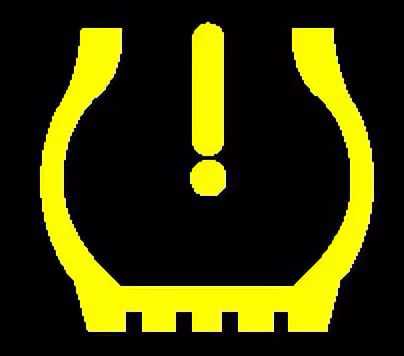 Use a gauge to check the pressure of all of the tires and add air to any tire that is low
Use a gauge to check the pressure of all of the tires and add air to any tire that is low
If the light flashes for approximately 60 to 90 seconds every time you start your car and then remains illuminated, this means the TPMS isn’t functioning properly and you should take it to an automotive service center for an inspection. Until repaired, the TPMS is out of order and is not able to warn you of low tire pressure. Check the air pressure of all of the tires with a gauge and add air to the tires that need it.
No! Understanding what a TPMS warning light means and what to do when it lights up is an important part of a driver’s responsibility. But it shouldn’t be a replacement for regular tire pressure checks. Why? Depending on the situation, the TPMS may have limitations such as:
• The TPMS warning light may be set to illuminate below the tire pressure needed to carry the load in the vehicle.
• The sensor(s) may not be accurately transmitting tire pressure data to the on-board computer.
• The system may not be able to accurately determine if a tire is too low if other tires are losing pressure at the same rate.
Therefore, even with TPMS, you should check tire pressure once a month, and before a long trip or when carrying extra load.
When the tire pressure monitoring system (TPMS) light comes on on your car's dashboard, it usually means that the air pressure in one or more tires has dropped below the expected level. But, unfortunately, due to the peculiarities of the operation of this system, very often the low tire pressure icon lights up on the tidy by mistake. nine0005
First, if your car is equipped with a tire pressure monitoring system, it is important to remember that it does not relieve you of regularly checking tire pressure, as well as inspecting the condition of the tires.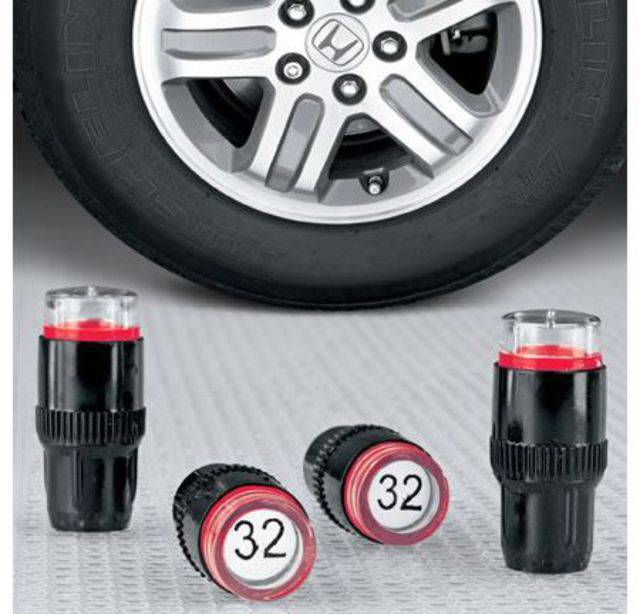 Although turning on the TPMS light can be a great puncture warning (a tire pressure monitoring system cannot replace physical inspection of the wheels for damage), and also free you from checking tire pressure with a pressure gauge.
Although turning on the TPMS light can be a great puncture warning (a tire pressure monitoring system cannot replace physical inspection of the wheels for damage), and also free you from checking tire pressure with a pressure gauge.
If you have a car with TPMS, that means there is a wireless sensor in every tire. Each sensor transmits data to a computer, which in turn analyzes the data with reference values and, in the event of a data discrepancy for any wheel, turns on an icon on the tidy to warn the driver about low tire pressure. Moreover, the indicator can light up both with insufficient pressure in one or more wheels, and with its excessive value. nine0005
See also How to prolong the life of car tires: The most important tips
But why do we need this system, if quite often it misleads drivers? In fact, the appearance of a low tire pressure icon on the tidy is the best reason to stop the car, take the pump with a pressure gauge and check the tire pressure.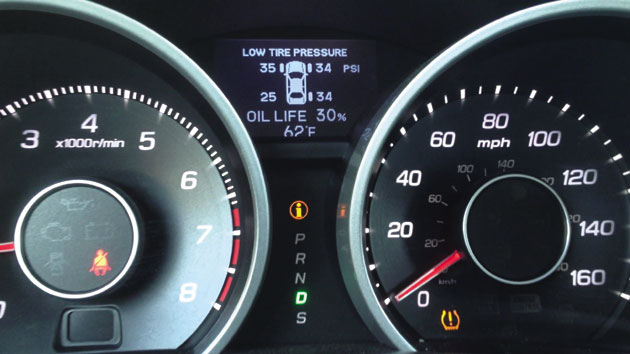 The tire pressure monitoring system still most often transmits important information for the driver. In 75% of cases, the warning of the tire pressure monitoring system really indicates problems in the wheels. nine0005
The tire pressure monitoring system still most often transmits important information for the driver. In 75% of cases, the warning of the tire pressure monitoring system really indicates problems in the wheels. nine0005

 Also be sure to check the tire pressure with a pressure gauge.
Also be sure to check the tire pressure with a pressure gauge.
In most cases, your car's tires are filled with air that is identical to the air in the atmosphere. But sometimes tires are filled with nitrogen instead of air. However, the same rules of thermodynamics apply to nitrogen that apply to the mixture of nitrogen, carbon dioxide, and oxygen, as well as other elements that make up the air we breathe and that we typically fill car tires with.
According to the laws of physics, if the temperature of a gas decreases, the pressure also decreases. Since the tires in a car are more and less a closed system, this essentially means that when the temperature of the air in the tire goes down, the air pressure in the tire goes down as well.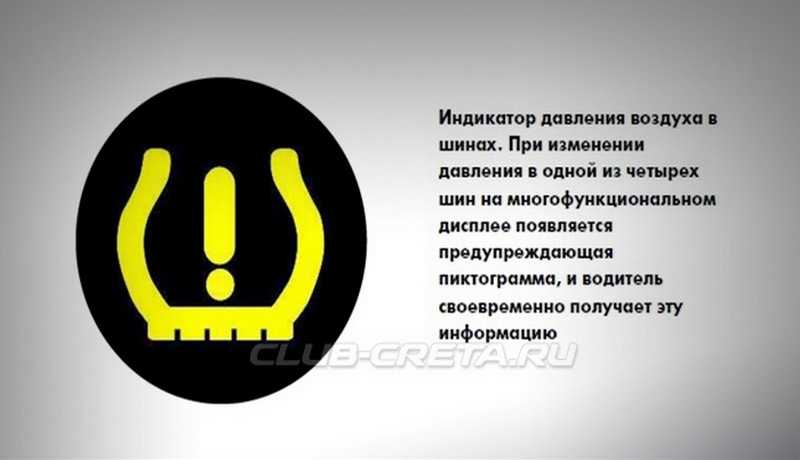 nine0005
nine0005
This is also true when the pressure rises due to an increase in temperature. As the gas expands as it heats up, it has nowhere to go because it is in the confined space of the tire, and the pressure increases as a result.
See also What is the correct tire pressure for various off-road conditions
The exact increase or decrease in tire pressure depends on a number of factors. But on average, it is believed that when the ambient temperature drops by 10 degrees Celsius, the tire loses about 0.07 bar and, conversely, when the temperature rises by 10 degrees, the tire pressure increases by about 0.07 bar. nine0005
Tire pressure problems are most common in winter. And this is logical, since in winter there are sharp temperature drops. This is especially true for the northern regions of the country, where the winter is very cold.
For example, if you inflated your car tires in August according to the factory specification, when the ambient temperature was 26 degrees, then with the onset of cold weather in late autumn, when the temperature outside dropped to -17 degrees, the pressure in the tires of your car will fall by about 0.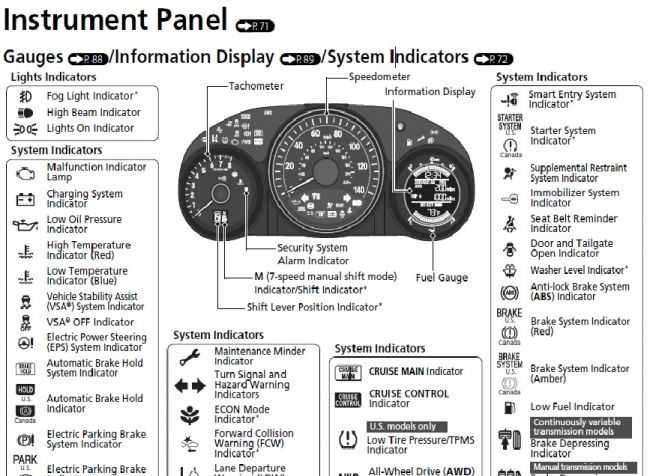 34 bar. nine0005
34 bar. nine0005
By the way, due to sudden changes in temperature at night and during the day in winter, the tire pressure monitoring system can start acting up. For example, if you get into your car early on a frosty morning and notice that the TPMS light comes on, but then goes off after a few hours, this indicates that tire pressure is changing due to temperature changes. In this case, we would advise not to change the tire pressure, as this is fraught with the fact that during the daytime the tire pressure will be excessive, which will lead to premature wear of the rubber tread. nine0005
Tire pressure may also change while the vehicle is in motion. The fact is that the friction of the tires causes them to heat up, which in turn causes the air inside the tires to heat up. This is one of the reasons automakers recommend inflating tires when they are cold rather than hot after the car has been driven.
Thus, there is a real possibility that the tire pressure monitoring system will warn you of insufficient tire pressure early in the morning, but after a while the vehicle is moving, the indicator will turn off on the tidy. nine0005
nine0005
If you check your tire pressure in the morning before you set off, you realize that the pressure is not low, but the tire pressure indicator on the tidy is on or flashing , most likely, in one of the wheels there is a malfunction of the pressure sensor. This error is not very common. But still, sometimes it happens. By the way, some fluids and dirt from the brake pads can accelerate the process of wear of tire pressure sensors. nine0005
On the other hand, if the tire pressure monitoring system warns you of low pressure when the tires are cold, inflating them while they are cold will save you unnecessary TPMS warnings in cold winter weather.
By the way, this is why it is recommended to check and adjust tire pressure several times a year. Especially when the seasons change. For example, with the onset of the cold season, it is recommended to add tire pressure and, conversely, with the onset of spring, it is recommended to slightly reduce the pressure.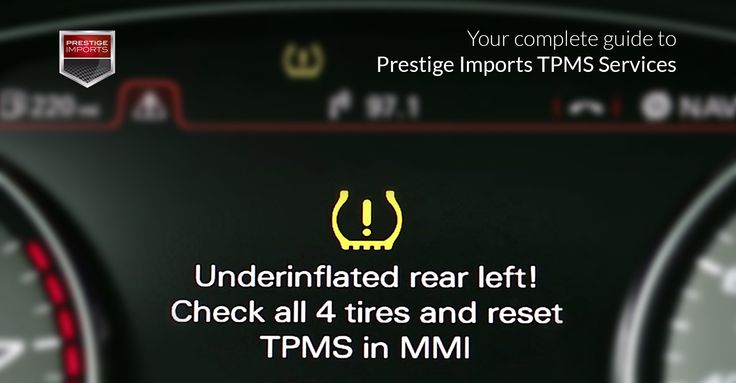 Taking into account changes in ambient temperature during the changing seasons in this way can save you problems with the tire pressure monitoring system indicator. nine0005
Taking into account changes in ambient temperature during the changing seasons in this way can save you problems with the tire pressure monitoring system indicator. nine0005
Excessive or insufficient tire pressure reduces the safety of road users, increases tread wear and increases gas mileage.
Therefore, car manufacturers recommend keeping tires in good shape by inflating them only to the desired pressure. But how can this figure be determined? After all, not all drivers know how to use a pressure gauge without the risk of a flat tire. And if you're not one of them or don't want to mess around with mechanical pressure gauges, a tire pressure monitoring system, which is abbreviated as TPMS, will suit you. nine0005
TPMS is part of the vehicle control system. Specifically, this system monitors the pressure in all tires of a car, with the exception of the spare tire. When the pressure drops below the level invested in the system memory, the driver receives a special signal. It continues to disturb the conscience and nerves of the driver until the pressure in the chamber or tire reaches a safe level.
When the pressure drops below the level invested in the system memory, the driver receives a special signal. It continues to disturb the conscience and nerves of the driver until the pressure in the chamber or tire reaches a safe level.
Until 2008, wheel pressure sensors were installed only in individual cars. However, after analyzing the causes of the accident, this system became mandatory for all new cars sold in the United States. Since November 2014, this practice has been picked up in the European Union. From that moment on, the TPMS system has become a mandatory element of every decent car. nine0005
In fact, this monitoring scheme was developed relatively long ago, back in the 20th century, but it was implemented only in military equipment and special vehicles. Therefore, the appearance of TPMS in civilian technology is a classic example of arms conversion.
The control system is based on two laws of physics.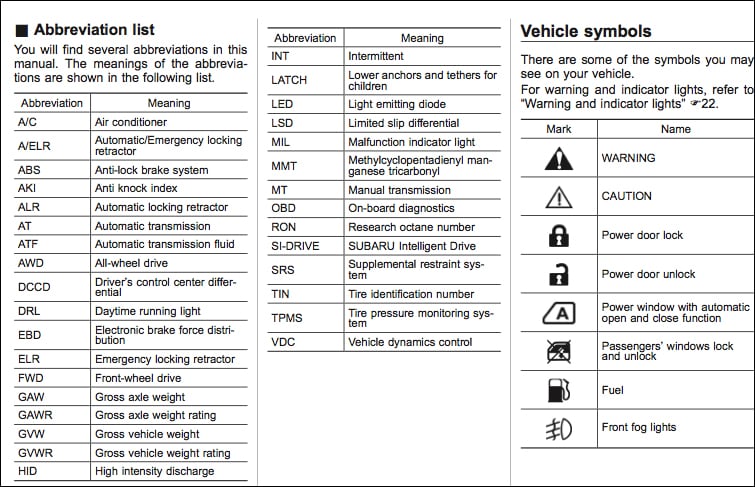 The first law states that a change in pressure in a car tire leads to an increase or decrease in the circumference of the tread. According to the second law, with an increase or decrease in the circumference, the speed of rotation of the wheel also changes. nine0005
The first law states that a change in pressure in a car tire leads to an increase or decrease in the circumference of the tread. According to the second law, with an increase or decrease in the circumference, the speed of rotation of the wheel also changes. nine0005
If you put a wireless (or wired) sensor on the axle of the wheelset that detects the wheel speed, and output the signal from this controller to the control panel, which has the correct speed stored in the memory, then in the process of continuous comparison of the actual and reference indicators, TPMS will be able to track the pressure in a car tire. In addition, the control sensor can be placed directly on the valve. It then reads the information directly, transmitting it to the control panel wirelessly. nine0005
By installing TPMS in the car, the driver will be able to control the pressure in the tire with an accuracy of the atmosphere. Due to this, it can prevent uneven wear of the tread and a drop in the level of grip with the roadway.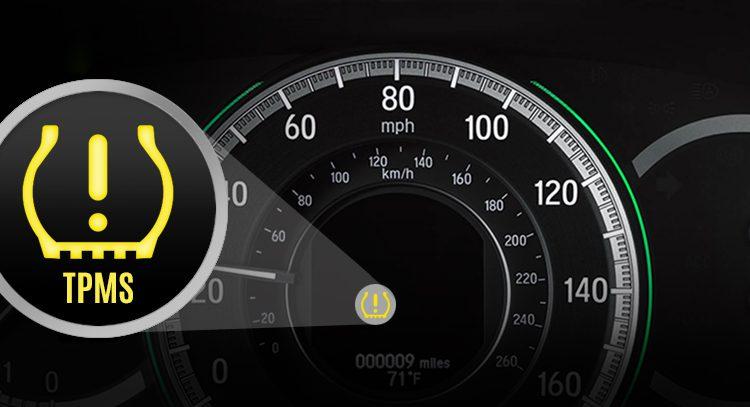
A timely noticed pressure drop will save you from the most common “technical” cause of an accident - the failure of a flat tire from the disc on the go. That is why the Tire Pressure Monitoring System has become a mandatory part of automotive electronics in both the US and the EU. nine0164
In addition to increased safety, the pressure monitoring system provides the following benefits:
 In addition, the long service life of the tire also contributes to the protection of nature.
In addition, the long service life of the tire also contributes to the protection of nature. Tire Pressure Monitoring System of any design guarantees these benefits. Therefore, TPMS manufacturers strive to attract the attention of customers by releasing a wide range of models with personal benefits.
The whole variety of wheel monitoring systems can be divided into two conditional groups: installations with direct measurements and controllers of indirect parameters. In the first case, the main controller of the car wheel parameters is a pressure sensor that replaces the tire valve. In the second case, the wheel speed is monitored - an indirect parameter related to tire pressure.
Installing a direct controller guarantees maximum measurement accuracy, and such systems control each wheel individually. Direct TPMS displays information on the number of atmospheres in each tire on the control panel screen, and these data are fed in real time, so any deviations from the reference parameters are immediately noticeable. nine0005
nine0005
Installing an indirect controller allows you to fix the very fact of the failure, so a flat tire can only be found at the service station, during the pressure check in each tire. Because of this, the owners of indirect systems ignore the signals of the controller until the last moment, saving on a visit to the service station.
If you want to increase the level of safety, buy a direct control system with any type of sensors.
Direct system operates external and internal sensors of the following type:
 Moreover, the chip can be built into the chamber or nipple. In this case, a display is used to retrieve information, which displays the pressure value (in bar), ambient temperature and other parameters. nine0034
Moreover, the chip can be built into the chamber or nipple. In this case, a display is used to retrieve information, which displays the pressure value (in bar), ambient temperature and other parameters. nine0034 The mechanical system can only operate with an external controller. Electronics can work with wireless sensors of external and internal type. Moreover, both external and internal sensors have their pros and cons. Therefore, before buying a specific TPMS model, the driver should understand the pros and cons of each option. nine0005
Winter Drive protection
Tires Goodyear UltraGrip Arctic 2 SUV
Winter Drive Protection Sound Comfort
Rating:
4. 5
5
Tires Goodyear UltraGrip Ice 2
Winter Drive protection
Tires Goodyear UltraGrip Performance+ SUV
Winter Drive protection
Tires Goodyear UltraGrip Arctic 2
Winter Drive Protection Run On Flat Sound Comfort
nine0004 Tires Goodyear UltraGrip Performance+ External wireless TPMS sensor is mounted at the request of the car owner. It is put in place of the spool or cap. Such a controller performs two functions - it works both as a shut-off valve and as part of a measuring device. This duality has a not-so-pleasant downside. Such controllers are characterized by false positives. They may show an incorrect value or fail due to external factors. This is the strongest drawback of external devices. nine0005
Such a controller performs two functions - it works both as a shut-off valve and as part of a measuring device. This duality has a not-so-pleasant downside. Such controllers are characterized by false positives. They may show an incorrect value or fail due to external factors. This is the strongest drawback of external devices. nine0005
The advantages of external controllers include versatility and low price. The sensor-cap can be put on any nipple. Moreover, the price of a set of external devices is commensurate with the cost of one internal sensor. However, chasing cheapness, you can lose the entire external kit - such controllers are stolen even more often than wipers.
Internal controllers are mounted both at the request of the car owner and at the direction of the vehicle manufacturer. Moreover, today the decision to install this device in a car older than 2014 was made by literally all automakers. Therefore, it can be found even in budget models of passenger cars. nine0005
Therefore, it can be found even in budget models of passenger cars. nine0005
In this case, the internal control scheme guarantees two major advantages at once. Firstly, such a device performs only a controlling function. It does not work as a locking unit, so its accuracy is not affected by external factors. Secondly, the internal placement eliminates the possibility of stealing the controller. It is simply not visible from the outside.
The only disadvantage of this accommodation option is the price. However, the ability to integrate the sensor into the car's wireless system partially solves that problem, allowing you to save on the control panel and display. nine0005
In addition to sensors, the format of the control panel also affects the choice of control system. After all, the very possibility of warning the driver about an emerging problem with tire pressure depends on its information content.
Owners of external and internal controllers can purchase simple remotes that provide visual and audible warning of a problem.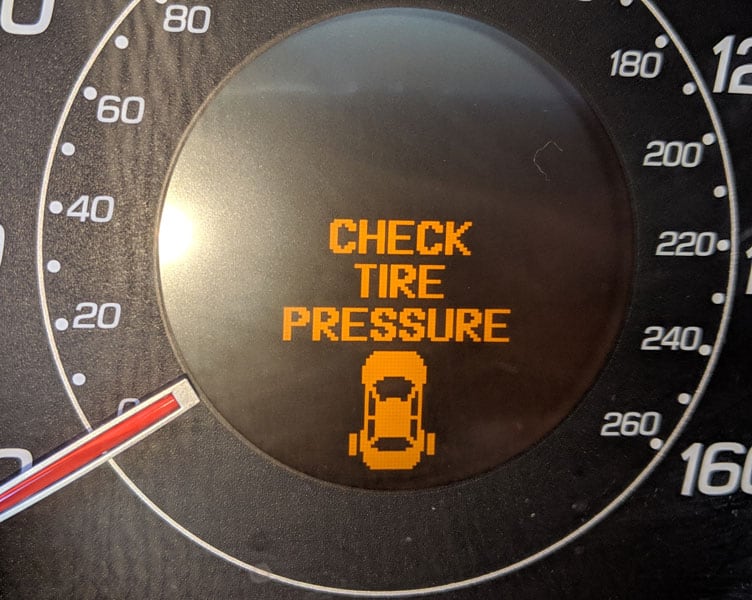 In such a remote control there is a control unit and two LEDs - green and red. When changing colors, the driver should check the tires in a car service. nine0005
In such a remote control there is a control unit and two LEDs - green and red. When changing colors, the driver should check the tires in a car service. nine0005
In addition to simple, single-signal TPMS consoles, they are equipped with more complex devices that display information on the pressure in each wheel. In addition to this information, such a remote control can show the temperature overboard, date and time, replacing the car clock. Moreover, a cigarette lighter socket is used to power such a remote control.
The most advanced controllers are equipped with a wireless communication module that allows you to synchronize the TPMS with the driver's smartphone. In this case, the owner of the machine does not need a separate control panel. He can set up the sensors to work with the phone using a special application. nine0005
Mechanical controllers are not calibrated or adjusted. You insert them in place of a conventional spool, and then inflate the tire to the desired pressure. After that, the cap of the mechanical shut-off and control device changes color (to a green color), which indicates the completion of the setting.
You insert them in place of a conventional spool, and then inflate the tire to the desired pressure. After that, the cap of the mechanical shut-off and control device changes color (to a green color), which indicates the completion of the setting.
The electronic sensors will take a bit longer, following these steps:
Once the calibration is completed, the driver can use the machine as he pleases.